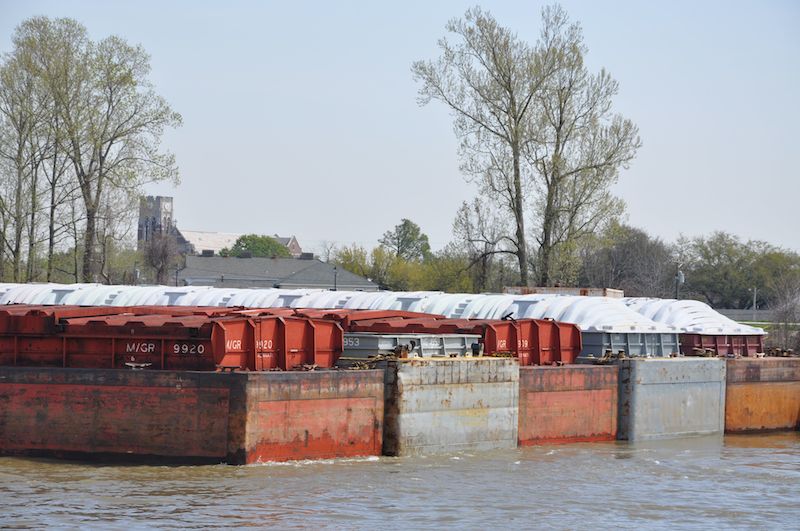Spot rates for grain barge exports have been increasing since late December, according to the U.S. Department of Agriculture's Grain Transportation Report released today.
In many locations, fog and ice have slowed barge logistics and increased operating costs, causing some increases in barge rates, the USDA said.
As of Jan. 17, the Illinois River barge rate for export grain was 345% of tariff ($16.01 per ton), 29% higher than the beginning of the year, but 20% lower than the three-year average. The GTR said that barge operators have indicated that future rates for barge shipments during February and April are currently trading at levels lower than the current January rates. For example, Illinois River barge rates for February shipments are 320% of tariff ($14.85 per ton), and April rates are 268% of tariff ($12.44 per ton). Other major barge originating points show a similar trend. This indicates a slower demand for barge services during mid-winter and into early spring with too many barges to meet expected demand, GTR reported.
In the Jan. 12 World Agricultural Supply and Demand Estimates (WASDE-561) report, the USDA lowered its estimates of this year’s (2016/17) record corn and soybean production compared to last month, the GTR said. More specifically, USDA estimated that corn production would hit a record 15.15 billion bushels, down 78 million bushels from last month due to lower harvested acres and reduced yields. The USDA estimates that corn use for ethanol production will increase, and feed and residual use will fall. Soybean production is still pegged by the USDA at a record 4.31 billion bushels, down 54 million from last month because of lower yields.
USDA projections for U.S. wheat production are relatively unchanged from last month at 2.31 billion bushels. The USDA anticipates domestic ending stocks to reach the highest level since the late 1980s. USDA also projects growth in global wheat supplies, pushing world wheat ending stocks to a new record (253.3 million metric tons) for 2016-17, the GTR reported.



.JPG.small.400x400.jpg)

